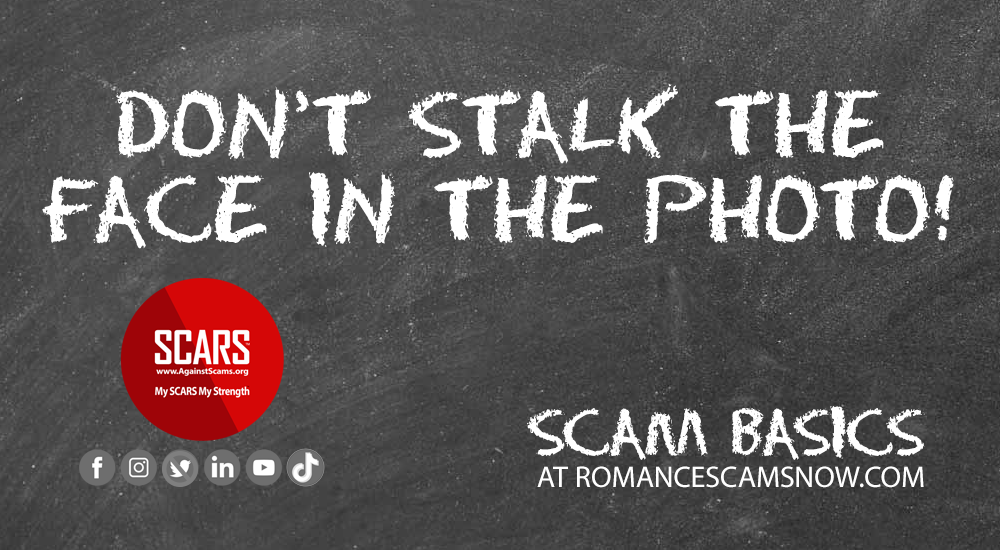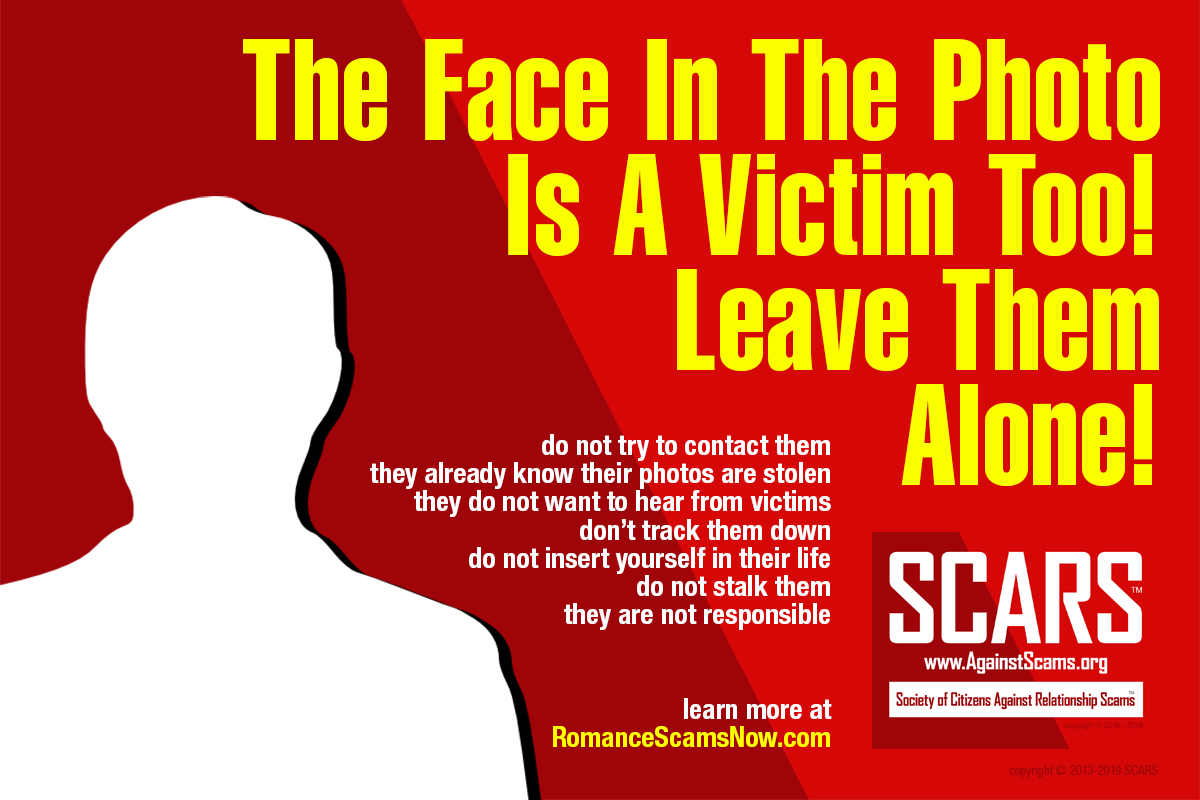Don’t Stalk The Face In The Photo! It’s A Crime
We Are All Sympathetic That Victims Are Scammed!
But Don’t Make It Worse By Breaking The Law Too!
SCARS Basics Series
People Who Have Had Their Photos Stolen Are Victims Too!
They Are Impersonation Victims!
However, it is even more of a problem when the scam victim that fell for those photos hunts down the impersonation victims.
That hunting down is can be a crime too! Called Stalking or Cyberstalking!
In the United States, individuals are classified as victims of stalking or harassment if they experienced at least one of the behaviors listed below on at least two separate occasions.
In addition, the individuals must have feared for their safety or that of a family member as a result of the course of conduct or have experienced additional threatening behaviors that would cause a reasonable person to feel fear.
Often scam victims will contact, threaten, and intrude into the lives of the impersonation victim. Some engage in serious threats, including calling the police on the impersonation victims, harassing their spouses and children, and even showing up at their homes and places of work.
Stalking behaviors by a scam victim include:
- making unwanted phone calls;
- sending unsolicited or unwanted letters or emails;
- following or spying on the victim;
- showing up at places without a legitimate reason;
- waiting at places for the impersonation victim;
- leaving unwanted items, presents, flowers, love letters or emails; or
- posting information or spreading rumors about the victim on the Internet/social media, in a public place, or by word of mouth
We Advise
We advise every scam victim to leave the person alone who appears in the photos. Scam victims do not have a relationship with them since their photos were stolen.
The U.S. Army has asked the United States Department of Justice to investigate stalking, cyberstalking, or harassment behavior of scam victims against active-duty military personnel and veterans whose photos were used in scams.
Never is it acceptable for a scam victim to make someone else’s life miserable, to harass them or stalk them online or in person. Scam victims need to understand that their desire to alert the impersonation victim is driven by something more than concern, and it is not their job to do it. Their job is to notify and report to the police and let them take any action warranted.
Scam victims that cannot accept this situation are putting themselves at risk of going from victim to criminal!




Please Leave A Comment - Tell Us What You Think About This!